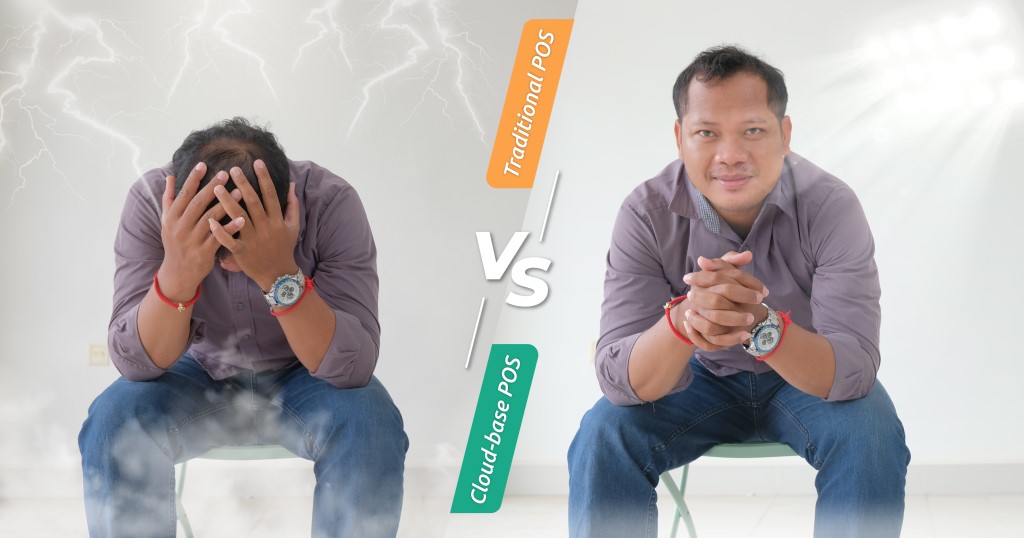LOCAL OR CLOUD, WHAT KIND OF SYSTEM SUITABLE WITH YOU?
It is beneficial for you as a shop owner to know the difference between a traditional POS System and Cloud POS System to make the right choice.

Data accessibility
TRADITIONAL POS: The data can only be accessed on-site, meaning that the owner or manager has to be physically present in their business facility to make any changes to the menu or items, to check employee clock-ins, to see sales report, etc.
CLOUD-BASED POS: The data can be accessed from anywhere, anytime. The owner or manager can monitor all of the reporting in real-time from anywhere with internet access using any device (a desktop, tablet, mobile, or laptop). They can also make any changes online, giving remote accessibility and eliminating the need to be there in person to do everything.

Data Loss Risk
TRADITIONAL POS: Since all the data is stored on local servers and run on a closed internal network, there is a risk of losing everything if the system crashes or encounters a bug.
CLOUD-BASED POS: Since all the data is stored online on remote servers, the risk of losing data is minimized. Even if the system crashes, the data remains safe because they are backed up automatically in the cloud, and can be restored easily.

COST
TRADITIONAL POS: Traditional POS systems usually have high upfront costs. They also require a maintenance fee because the software needs to be updated manually on-site, which requires additional labor and time. Also, in case the system crashes, the cost of re-installation can be expensive.
CLOUD-BASED POS: Cloud-based POS is often cheaper because the installation is not as complex. It usually has a subscription model of a monthly or yearly fee. The software is also updated automatically by the service providers, in which the cost is already included in the monthly or yearly charges.

Frequent updates
TRADITIONAL POS: For many traditional systems, the server needs to be updated manually on-site, which results in fewer updates (often once a year at most).
CLOUD-BASED POS: For cloud-based systems, the provider implements the updates automatically and remotely, meaning there is no need for on-site visits to update the system. They usually update more frequently than the traditional systems, and it updates in real-time, ensuring that you are always utilizing the current version of the software.

Internet Dependency
TRADITIONAL POS: Traditional systems do not rely on the internet, so even if there is no internet, it can continue to run smoothly and efficiently without affecting the service.
CLOUD-BASED POS: Contrary to the traditional systems, cloud-based systems are heavily dependent on the internet, so if the internet connection is poor or lost, this can affect the service greatly. However, HANGPOPOK POS CLOUD have OFFLINE capabilities, allowing you to continue to make sales and run the business as usual even without internet. The data can be synced later when it is connected to the internet again.

Integrated systems
TRADITIONAL POS:
For traditional POS systems, it is often difficult to integrate new modules, and features, and updates. This makes it harder to customize the system, and the business has to use it as is.
For traditional POS systems, it is often difficult to integrate new modules, and features, and updates. This makes it harder to customize the system, and the business has to use it as is.
CLOUD-BASED POS:
With the cloud-based POS system, it is possible to fully integrate higher functionality modules and connect with third-party software programs to customize the POS according to the business’s needs. These modules include loyalty programs, online ordering, CRM, inventory management, accounting, and many more.
With the cloud-based POS system, it is possible to fully integrate higher functionality modules and connect with third-party software programs to customize the POS according to the business’s needs. These modules include loyalty programs, online ordering, CRM, inventory management, accounting, and many more.
